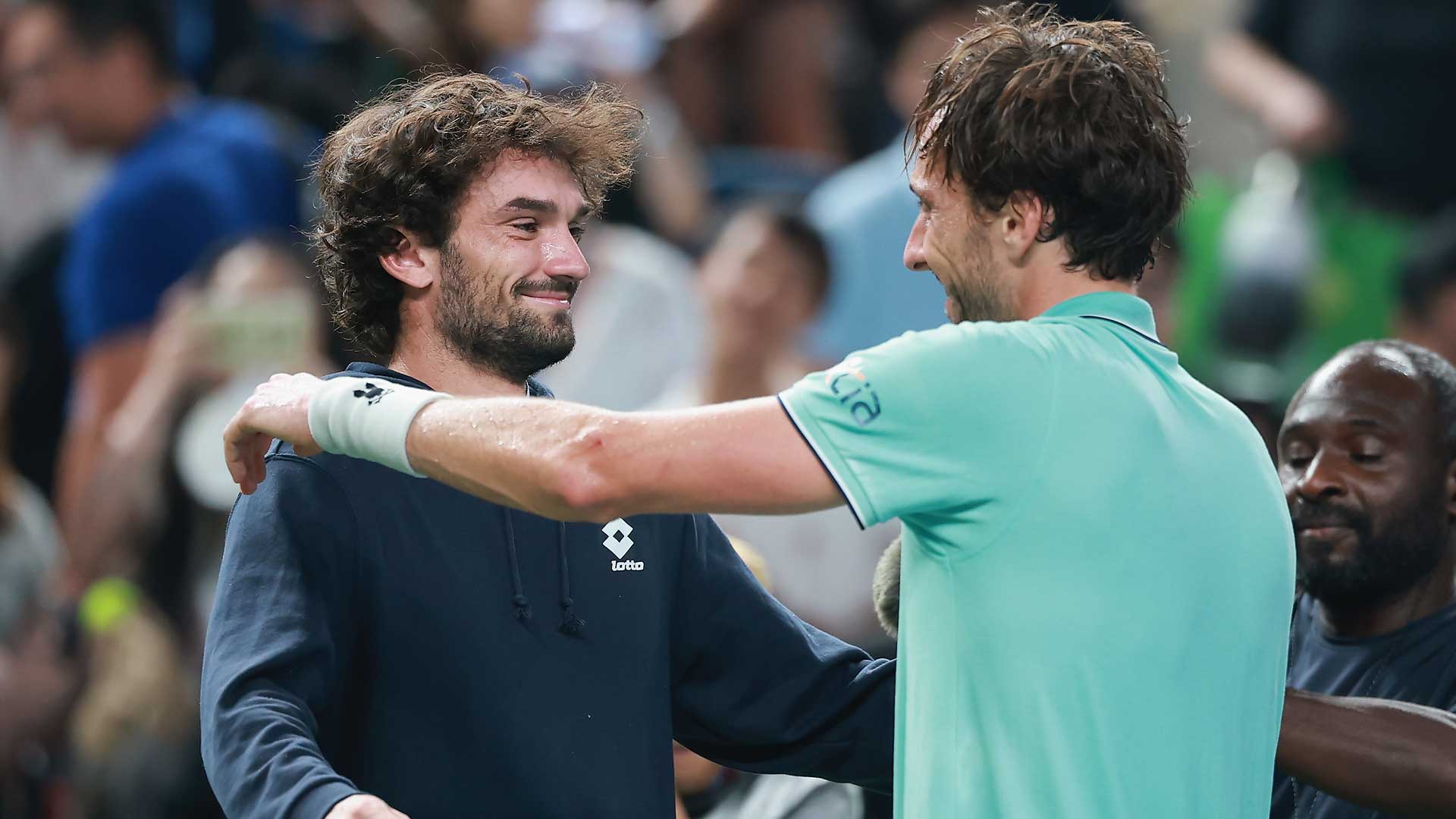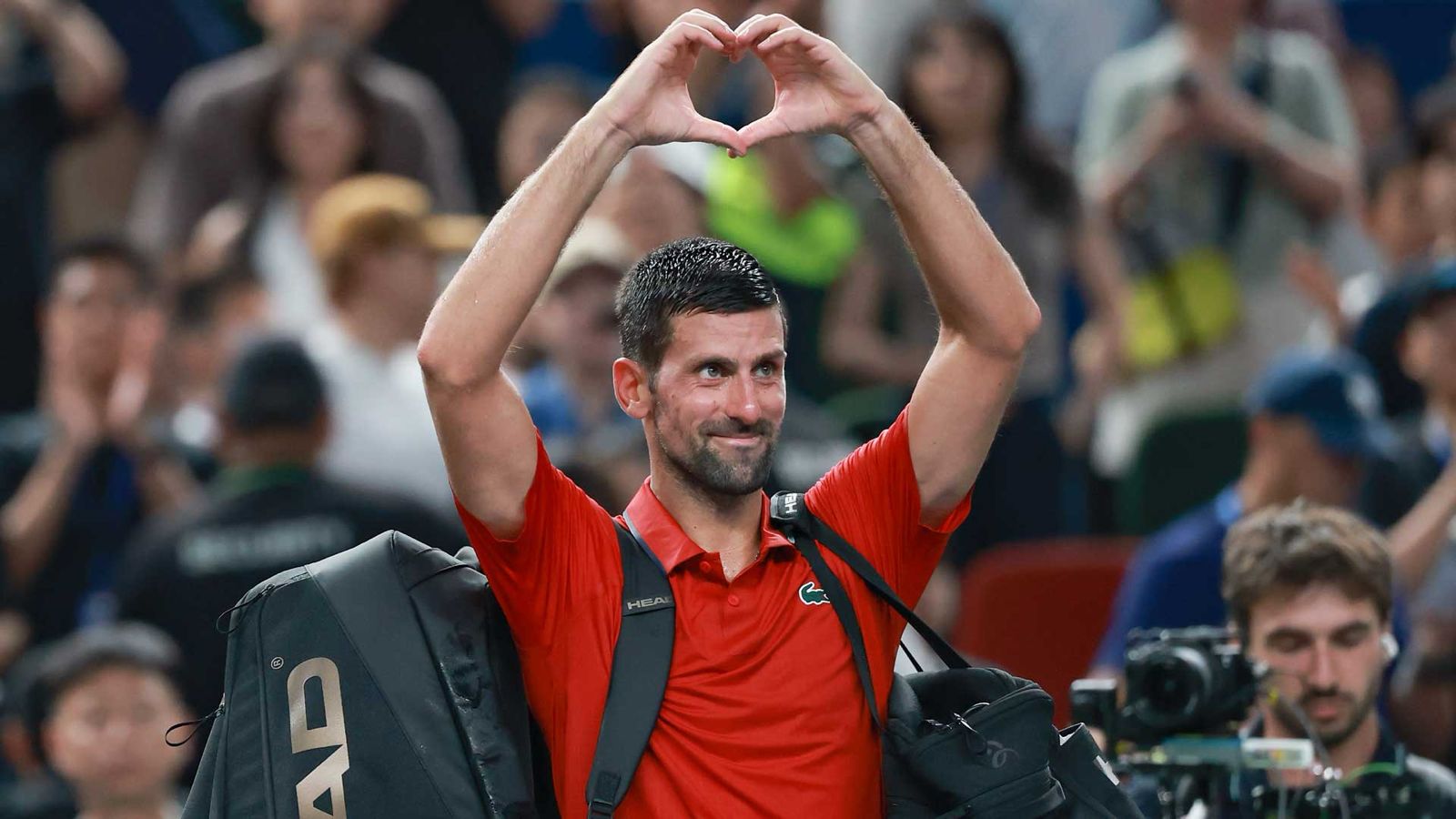
Saturday proved a tough day for tennis legend Novak Djokovic and final stage habitué Daniil Medvedev. Both fell to French speakers from opposite sides of the Riviera, divided by a border but bound by blood. As Shanghai braces for Sunday’s final, we look back at the semifinals — and at why this rare family affair has set the tournament alight.
When Djokovic learned he would be facing world No. 204 Valentin Vacherot, he praised the Monegasque’s rise: it was good to see someone from Monaco finally breaking through. But Saturday afternoon in Shanghai brought a different story. It became another test of Djokovic’s endurance in the tournament — marked by physical strain, medical timeouts and on-court sickness. On the other side of the net, Vacherot played the part of the fearless wildcard — an underdog chasing what could be the defining win of his career.
While the match began on even footing, Djokovic soon showed early signs of discomfort in his left leg. A moment early on seemed to capture the tone of the duel: just after firing an ace, he called for a medical timeout. Still, the Serb dug in, pushing through the pain to contest the second set after dropping the first 6–4 to a sharper, more physical Vacherot — focused, composed, entirely locked in.
The second set had all the makings of a turning point. Djokovic stood his ground and though a few uncharacteristic double faults crept in at 4–4, he aced his way back into the game. A third set loomed — and with it, his best tennis. What followed was the highlight of the match: Djokovic sliced low to draw Vacherot to the net, then sprinted across the court to flick a passing shot that left the Monegasque stranded. In extremis, the Serb reminded everyone why he’s so hard to put away. Yet the momentum flickered. A final double fault handed Vacherot the decisive break, and moments later, the underdog closed it out with a composed service game. As he sealed the win, one thought lingered — perhaps, just perhaps, the family affair would be on.

Just after Djokovic’s exit, Daniil Medvedev took to the court to face Arthur Rinderknech. Perhaps the Serb’s shock defeat lingered in his mind — if the world’s greatest could fall to the world No. 204, then rankings suddenly felt irrelevant. For Rinderknech, the motivation was clear: he wouldn’t be facing the legend, but with a win, he might just earn the chance to face his younger cousin.
Their encounter was charged with emotion — a test of resilience and nerve. Medvedev took the first set 6–4 after a cautious start, capitalising on Rinderknech’s early jitters and a string of unforced errors. As the set concluded, both players headed for a break, but when Medvedev returned promptly to the court, Rinderknech lingered a little longer. At that stage, any tactic to rattle the Russian felt worth a try.
Rinderknech stormed back with fierce determination to take the second set 6–2. He wasn’t about to miss the chance of facing his own cousin, was he? The match would now be decided in a third and defining set. And the Frenchman didn’t shy away — on the contrary, he rose to the moment. At 4–4, the duel hung finely in the balance, but Rinderknech held firm to lead 5–4 on serve. All he needed now was a break — or the nerve to survive a tie-break. It was the kind of pivotal moment that reminds us tennis is, above all, a mental game. Rinderknech piled on the pressure, pushing Medvedev to 40–30. The Russian flirted with defeat through a double fault, recovered to deuce, but the momentum had shifted. Another double fault sealed it — and with it, a career-defining moment for Arthur Rinderknech: a Masters 1000 final, against his own cousin.
The family affair is set for Sunday, 12 October — two cousins facing off for the Shanghai title. After the Rinderknech–Medvedev semifinal, they shared a warm embrace; but come tomorrow, one question remains: will family affection give way to fierce ambition, or will this final gift us a duel played with brotherly charm?



